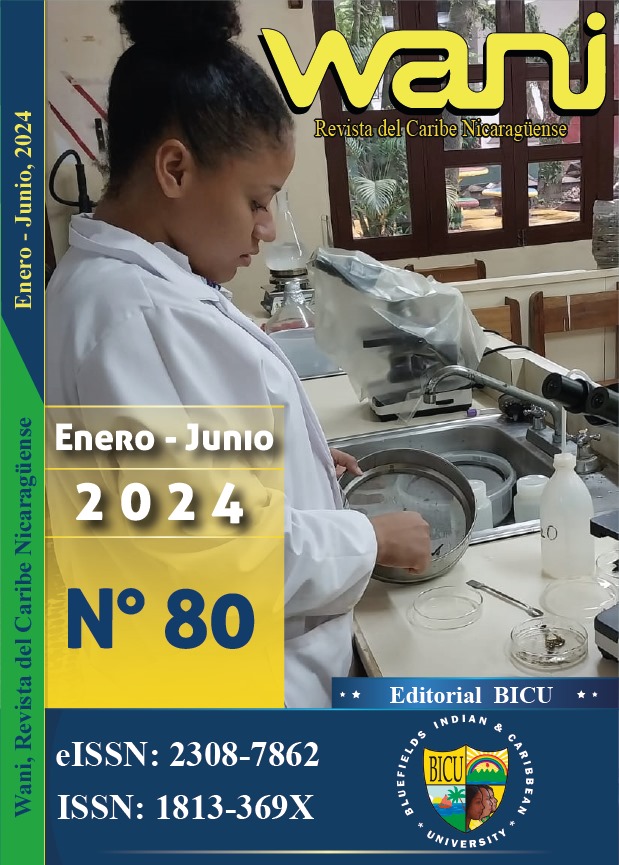Management of solid waste in the Caribbean of Nicaragua during Covid-19
DOI:
https://doi.org/10.5377/wani.v40i80.18128Keywords:
Food safety, public health, waste treatmentAbstract
In the face of Covid-19, the world adopted measures such as the use of face masks to avoid contagion. This disposable product generated great pressure on municipal services and institutions such as the Bluefields Indian & Caribbean University (BICU), and the mayoralties of Bluefields, El Rama, Bilwi, and Bonanza where this university has campuses, for biosafety protocols to protect their collaborators during waste collection. Study objectives: classify solid waste derived from protection strategies against the pandemic; assess the protection measures used at the evaluated levels (municipal and university management) and propose an action plan for the reduction of biological risks and management of solid waste, as disseminating agents of covid-19. The methodology contemplated the characterization of waste in situ at the collection and final disposal points; Biosafety protocols and availability of personal protective equipment for operators in the process were evaluated. Among the results, the following stand out: the need to create a waste management plan as a tool to minimize the risks of coronavirus contagion for four municipalities and the validation of strategies. Likewise, the cohabitation of people, including children, in landfills was identified, as being a trigger for the proliferation of zoonotic diseases; local, regional and national government entities in alliance with universities must generate strategies to reduce identified risks.
Downloads
181
MP3 (Español (España)) 43
Downloads
Published
How to Cite
Issue
Section
License
Copyright (c) 2024 Bluefields Indian and Caribbean University

This work is licensed under a Creative Commons Attribution-NonCommercial-ShareAlike 4.0 International License.




